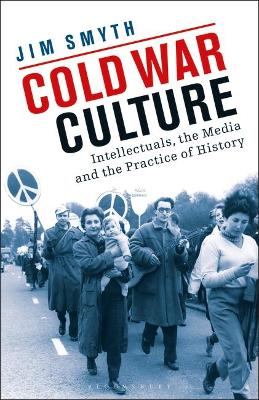
Cold War Culture: Intellectuals, the Media and the Practice of History
(Paperback)
Publishing Details
Cold War Culture: Intellectuals, the Media and the Practice of History
By (Author) Jim Smyth
Bloomsbury Publishing PLC
Bloomsbury Academic
20th February 2020
United Kingdom
Classifications
Tertiary Education
Non Fiction
Historiography
History of ideas
Centrist democratic ideologies and movements
Far-left political ideologies and movements
Social and cultural history
Cold wars and proxy conflicts
941.0855
Physical Properties
Paperback
256
Width 138mm, Height 214mm, Spine 16mm
360g
Description
Britain in the 1950s had a distinctive political and intellectual climate. It was the age of Keynesianism, of welfare state consensus, incipient consumerism, and, to its detractors - the so-called 'Angry Young Men' and the emergent New Left - a new age of complacency. While Prime Minister Harold Macmillan famously remarked that 'most of our people have never had it so good', the playwright John Osborne lamented that 'there aren't any good, brave causes left'.Philosophers, political scientists, economists and historians embraced the supposed 'end of ideology' and fetishized 'value-free' technique and analysis. This turn is best understood in the context of the cultural Cold War in which 'ideology' served as shorthand for Marxist, but it also drew on the rich resources and traditions of English empiricism and a Burkean scepticism about abstract theory in general. Ironically, cultural critics and historians such as Raymond Williams and E.P. Thompson showed at this time that the thick catalogue of English moral, aesthetic and social critique could also be put to altogether different purposes. Jim Smyth here shows that, despite being allergic to McCarthy-style vulgarity, British intellectuals in the 1950s operated within powerful Cold War paradigms all the same.
Author Bio
Jim Smyth is Professor of History at the University of Notre Dame. He is a specialist in British and Irish history and his publications include The Making of the United Kingdom 1660-1800: State, Religion and Identity in Britain and Ireland and The Men of No Property: Irish Radicals and Popular Politics in the Late Eighteenth Century.
